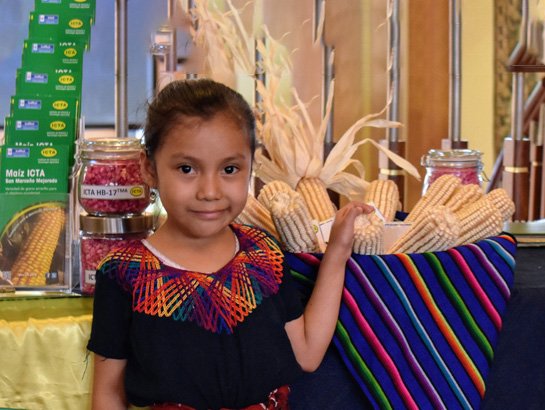At the recent launch of Guatemala’s Economic Recovery Plan in response to COVID-19, the Minister of Livestock and Food, José Ángel López, announced that biofortified crops will be part of the National System of Strategic Food Reserves that will be used in the Plan to increase resilience to future crises. The Ministry intends to promote seeds of biofortified crop varieties to help address food insecurity and malnutrition.
According to the Economic Recovery Plan, the government aims to purchase more than 22,000 tons of maize and more than 4,500 tons of beans annually, including some biofortified varieties developed by Institute of Agricultural Science and Technology (ICTA) of Guatemala and other HarvestPlus partners.
Given the serious impacts of the pandemic, the Guatemalan Government came up with a strategy to ensure that the country could respond to future crises. The grain reserve plan is part of a strategy to avoid food and nutritional insecurity when any natural disaster or political disturbance occurs. The government move was informed by a meeting between the World Food Programme (WFP) and MAGA, in which both WFP and MAGA suggested the inclusion of biofortified grain in those emergency reserves given the nutritional benefits of biofortified crops.
HarvestPlus works in Guatemala in partnership with ICTA and the Ministry of Agriculture (MAGA). Biofortification activities in the country are led by ICTA, which is the governmental institution that is responsible for agricultural research. Biofortification activities also have significant support from the Institutional Platform for the Development and Use of Biofortified Crops in Guatemala, or Plataforma BioFORT, which is a working group for the discussion, coordination, and execution of cooperation and research initiatives aimed at strengthening biofortified crops in the country.
This marks the first time that biofortified crops have been officially mentioned by a government minister in Guatemala during a public event, and it is the first time that these crops are being included in a major National Plan. “The decision by the government to include biofortified crops as part of the recovery plan is a testament to the strong public engagement by biofortification stakeholders in recent years,” said Salomon Perez, HarvestPlus Guatemala Country Manager.
The Economic Recovery Plan aims to promote “the recovery and generation of new jobs, attracting strategic investment to the country and promoting the consumption of Guatemalan goods and services”.
HarvestPlus currently reaches more than 50,000 farmers with biofortified crops like zinc maize and iron beans in Guatemala.
